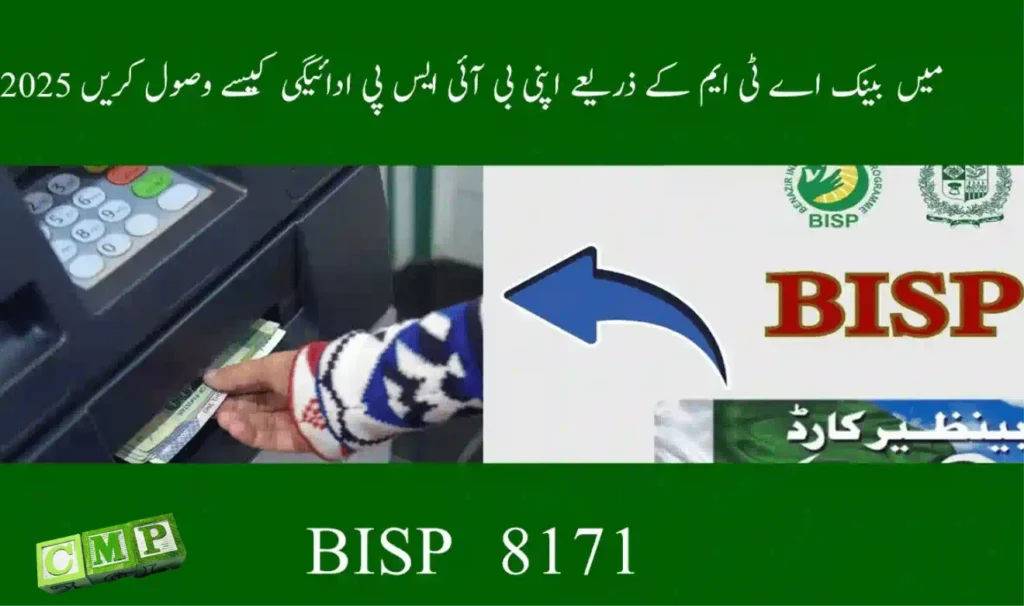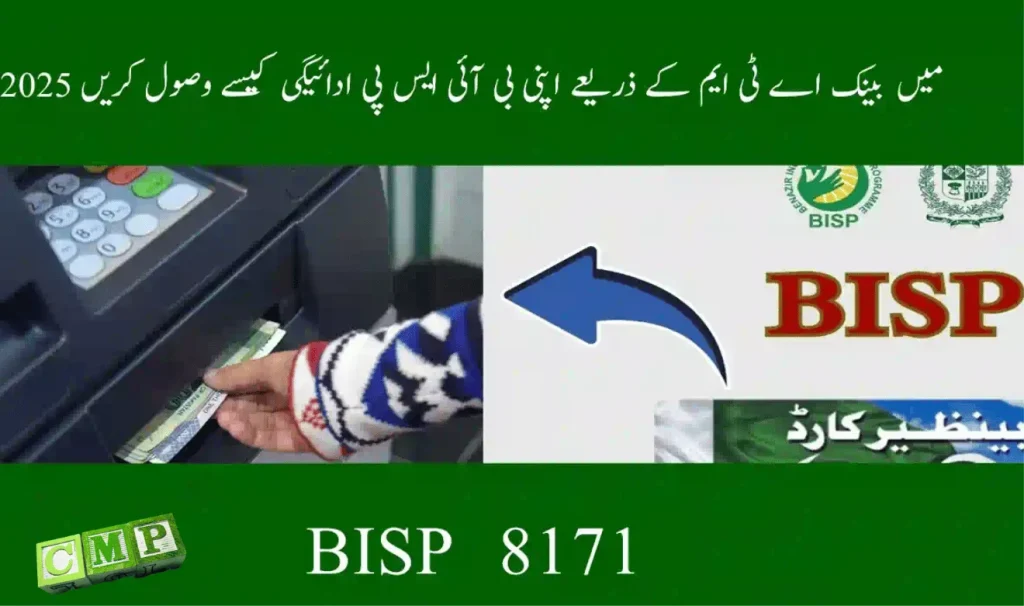How to Collect Your BISP Payment Through Bank ATMs in 2025
The Benazir Income Support Programme (BISP) has been a lifeline for millions of poor and vulnerable families across Pakistan. It provides regular financial support to help households manage essential needs like food, electricity, healthcare, and education. In the past, payments were mostly collected from distribution camps or through agents. While useful, these methods often caused long queues, delays, and unfair deductions.
To solve these issues and align with modern banking, the government has introduced ATM-based withdrawals for BISP beneficiaries. In 2025, this has become one of the most reliable, secure, and convenient ways to collect stipends. Beneficiaries can now withdraw cash anytime—just like other bank customers—without waiting for camp schedules.
Still, many women ask: Do I need a debit card? Which banks allow ATM withdrawals? What if my fingerprint does not match? What if the ATM fails? This complete step-by-step guide explains everything.
Why ATM Withdrawals Are Better Than Traditional Collection
ATM withdrawals bring several advantages compared to older collection methods:
- Time saving: No standing for hours in queues at camps.
- Direct access: Money is transferred directly without middlemen.
- Privacy and dignity: Collection happens inside ATM booths.
- Flexibility: ATMs operate 24/7.
- Transparency: Full payment, no cuts or deductions.
- Security: Biometric verification ensures the rightful beneficiary receives the cash.
This system reflects BISP’s broader move toward digital banking and financial empowerment.
Confirming That Your Payment Is Ready
Before visiting an ATM, confirm that your payment is available:
- Open SMS on your phone.
- Type your 13-digit CNIC number.
- Send it to 8171.
- You will receive a reply confirming:
- Whether your payment is released
- The available amount
- Any special instructions, such as CNIC renewal
⚠️ If the SMS says your payment is not yet ready, wait before going to the ATM.
Banks That Support BISP ATM Withdrawals
As of 2025, BISP has partnered with multiple banks:
- Habib Bank Limited (HBL) – the primary partner with the widest ATM network.
- Bank Alfalah also supports BISP disbursements.
- Other partner banks – gradually being added under the digital expansion plan.
Note: Only ATMs equipped with biometric scanners can process BISP withdrawals.
Step-by-Step Guide: Withdrawing BISP Payments at ATMs
Step 1: Visit the correct ATM
Go to an HBL or Bank Alfalah ATM with biometric facilities.
Step 2: Select withdrawal method
- Using Debit Card: Insert the BISP debit card, enter PIN (often last four CNIC digits), choose “Cash Withdrawal,” and type the amount.
- Using CNIC: Without a card, select the CNIC option, enter your number, and verify with your thumbprint.
Step 3: Check balance
Confirm your available funds before withdrawing.
Step 4: Withdraw your stipend
Enter the amount, collect cash, and keep the receipt.
Step 5: Secure your money
Put cash away safely and leave the booth quietly.
Common Issues and Quick Solutions
- Fingerprint not matching: Wash and dry hands, press lightly. Try another ATM if needed. For repeated failure, visit a BISP office.
- ATM shows no cash: Return later or try another ATM. Machines usually refill in the morning.
- Transaction fails, but balance is deducted: Keep your slip. Wait 2–3 days for reversal. If unresolved, contact the bank or BISP helpline.
- Card blocked after wrong PIN: Visit the bank branch to reset.
- ATM out of service: Cancel and try another machine.
Can Someone Else Collect the Payment?
No. Only the registered beneficiary can withdraw money because fingerprint verification is mandatory. This protects against fraud. Elderly or disabled beneficiaries unable to use ATMs can seek assistance at BISP offices or designated camps.
Alternatives to ATM Withdrawals
For those without ATM access, alternatives remain:
- Retail outlets and agents like JazzCash or Easypaisa.
- BISP payment camps at the tehsil headquarters or schools.
Both methods still use biometric checks for security.
Safety Tips for ATM Withdrawals
- Use official BISP-linked bank ATMs.
- Carry CNIC, debit card, and SMS confirmation.
- Never share your PIN.
- Withdraw during daylight for safety.
- Always keep receipts until the next cycle.
- Avoid help from strangers.
- For issues, call the BISP helpline 0800-26477.
Real-Life Example: Nasreen’s ATM Experience
Nasreen, a widow from Multan, once spent whole days at BISP camps facing cuts from agents. In 2025, she sent her CNIC to 8171, confirmed her payment, and visited an HBL ATM. She entered her CNIC, scanned her fingerprint, and within minutes collected her stipend—full and fair.
Her story shows how ATMs are changing lives by saving time and protecting dignity.
The Future of Digital BISP Payments
ATMs are only the start. The government plans further digitalisation:
- Mobile wallets linked to CNICs
- Universal debit cards across all banks
- Real-time deposit alerts
- Access to micro-savings and small loans
This vision connects poor households to Pakistan’s broader financial system.
FAQs
How do I check if my payment is ready?
Send CNIC to 8171 via SMS.
Do I need a debit card?
No. You can use CNIC and biometric verification directly.
What if the ATM deducts money but no cash is dispensed?
Wait 2–3 days for automatic reversal. If not, contact the bank or the BISP helpline.
Final Thoughts
Collecting your BISP payment through ATMs in 2025 is one of the fastest, most secure methods. The process is simple—confirm payment, visit a biometric ATM, verify with CNIC or card, and withdraw. While minor technical issues can occur, solutions are straightforward.
If ATMs are unavailable, retail agents and camps remain alternatives. But for those with access, ATMs provide dignity, transparency, and full payments without deductions.
This digital shift is not just about convenience. It is about financial empowerment, security, and hope for millions of Pakistani families.

